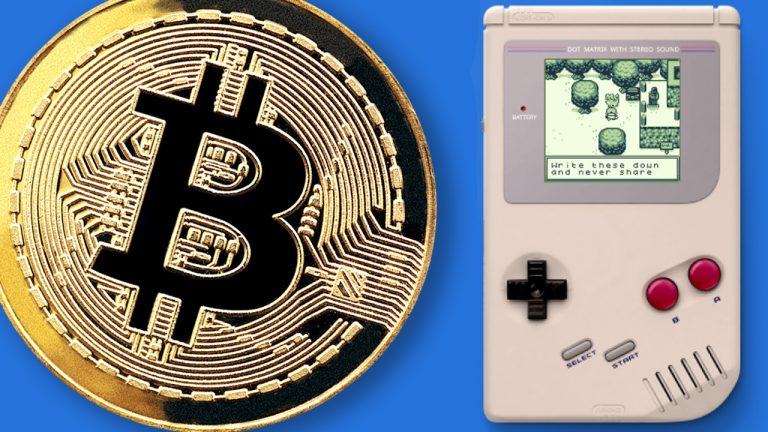
In the near future, Game Boy owners will have the opportunity to convert their devices into a hardware wallet for cryptocurrencies. The project, known as the Game Wallet, was unveiled by Joseph Schiarizzi, a developer hailing from Keyp, a Web3 startup. By employing a physical cartridge, this innovation enables users to harness the power of their Nintendo Game Boy device as a secure cold storage wallet for crypto assets.
Keyp’s Game Wallet: Turning Game Boy Into a Secure Hardware Wallet for Cryptocurrencies
On May 19, Joseph Schiarizzi, a developer from the cryptocurrency company Keyp, unveiled a project he has crafted since the beginning of the year. Schiarizzi introduced a concept that utilizes a physical Game Boy cartridge, resulting in the creation of a “truly offline hardware wallet” that operates independently without the need for firmware updates. To support his innovation, Schiarizzi shared a tweet he published in January, showcasing a Game Boy game where the character can generate a seed, illustrating the potential of the endeavor.
“So we’re producing a real physical cartridge that lets you use your Game Boy as a cold storage wallet, generate mnemonic phrases and save them securely offline,” Schiarizzi tweeted. “No firmware updates ever. Randomness for generating the keys is introduced by the player as they walk around the world and complete fun quests, RPG style.”

Back in April 1989, Nintendo unleashed the 8-bit handheld gaming device known as the Game Boy in Japan. Fast forward to March 2021, and a Youtuber decided to push the boundaries of the Game Boy’s capabilities and released a video showcasing an audacious feat: mining bitcoin (BTC) using the iconic device. However, it quickly became apparent that the Game Boy’s humble processing power paled in comparison to today’s cutting-edge mining rigs. Another individual embarked on a similar venture in 2013, developing a Nintendo Entertainment System (NES) miner.
Although both mining experiments with the Game Boy and NES were intriguing and fun, their practical value (which was impractical in terms of mining) paled in comparison to something with actual utility. The Game Wallet project has even established a dedicated website, inviting visitors to sign up and stay informed about the availability of the initial batch of cartridges. The website further emphasizes the importance of offline functionality in safeguarding digital assets. The Game Wallet website states:
Devices that physically cannot connect to the internet are more secure by nature. A device that was created before cryptocurrency existed, that can never be attacked through digital phishing, and has been sitting on your shelf for 20 years is even better.
The Game Wallet news comes on the heels of recent criticism directed at Ledger’s new Ledger Recovery service. It also follows 1inch Network’s announcement of a new hardware wallet in January and Coinkite’s introduction of a “higher-end” Coldcard bitcoin wallet in February. According to the Game Wallet website, Schiarizzi’s project utilized the Assembly programming language used for Nintendo consoles and games.
“We converted an open source assembly implementation of the sha256 hashing algorithm used to generate cryptographic seed phrases based on BIP-39 into GBAssembly, the language all Game Boy games are programmed in,” the website details.
What do you think about the Game Wallet idea? Share your thoughts and join the discussion in the comments section below.




